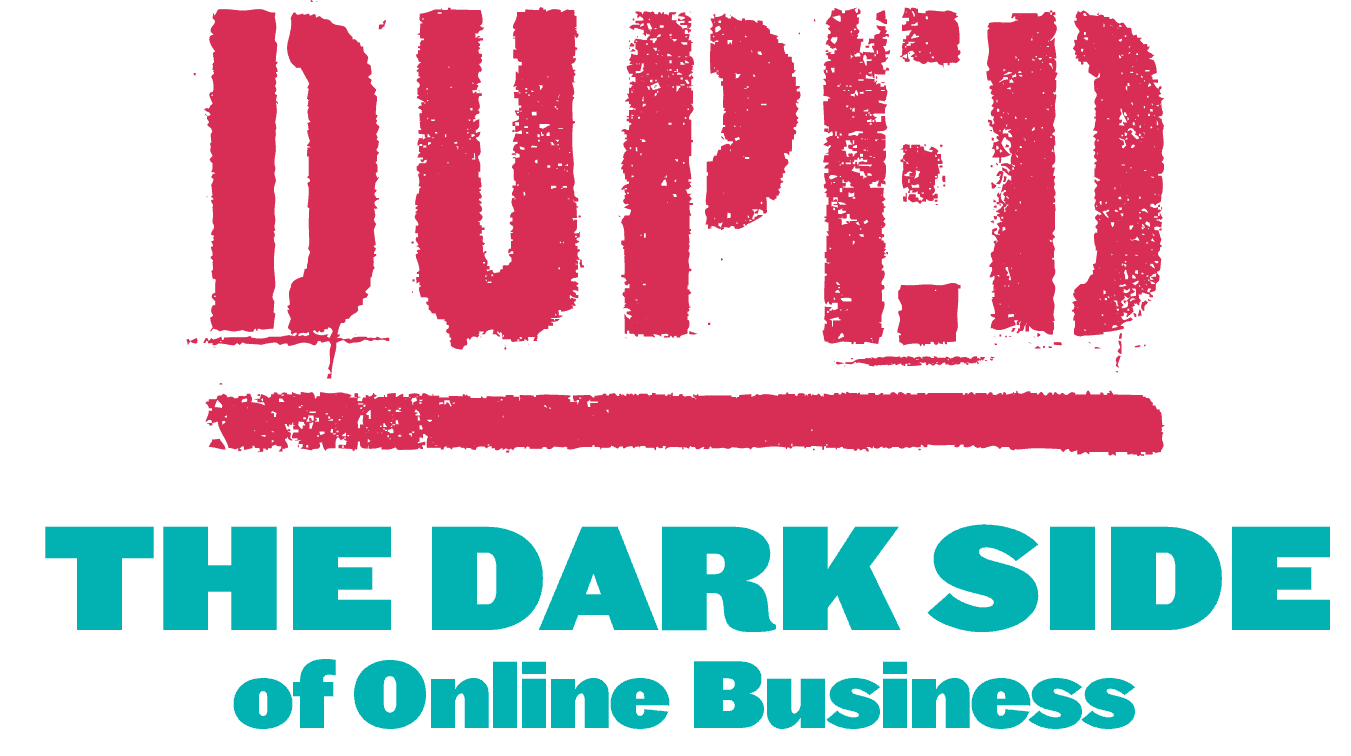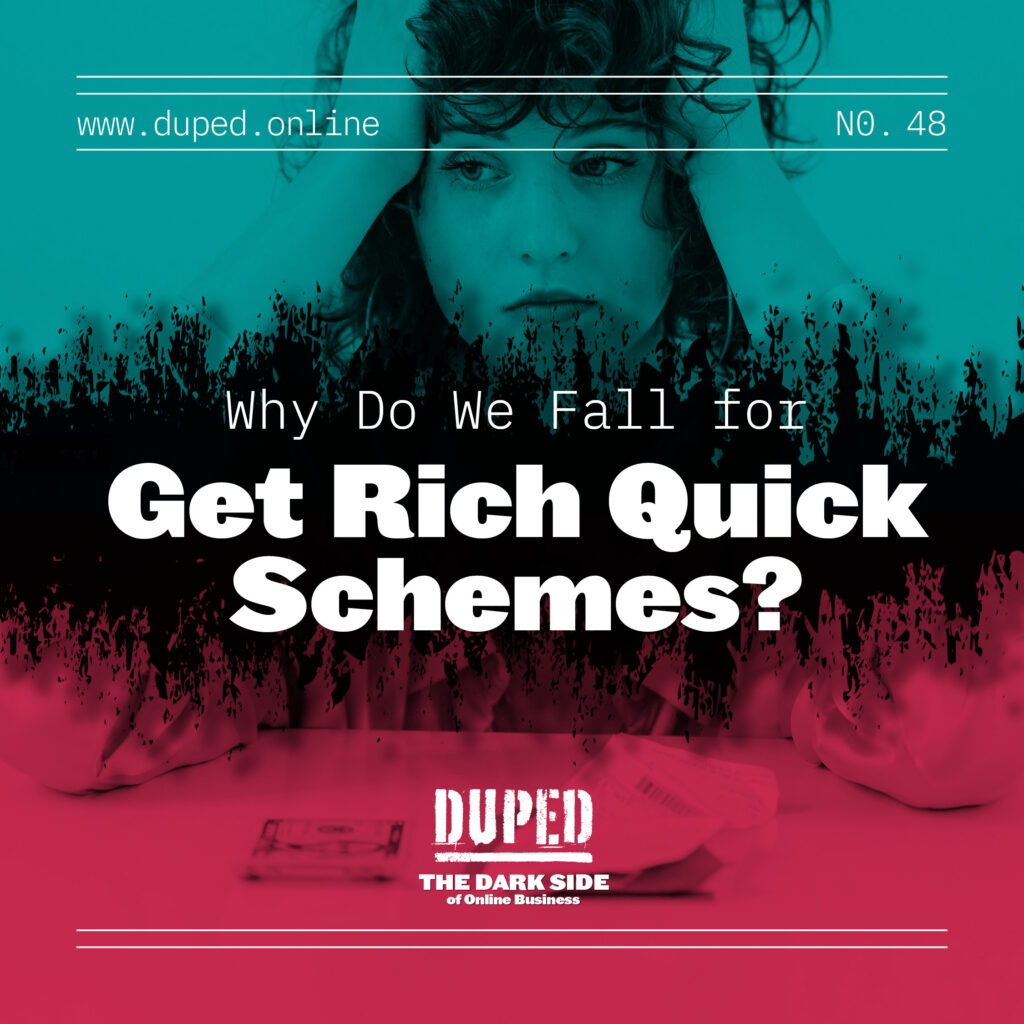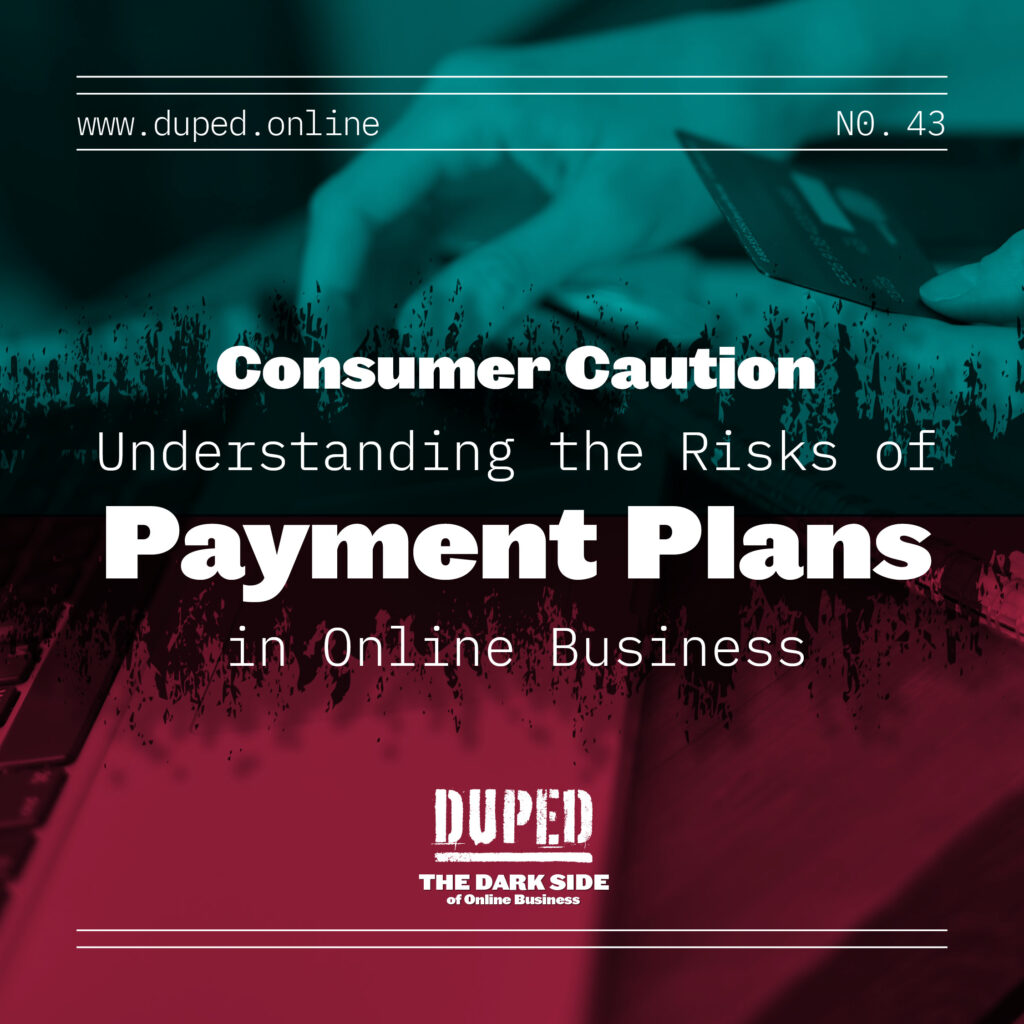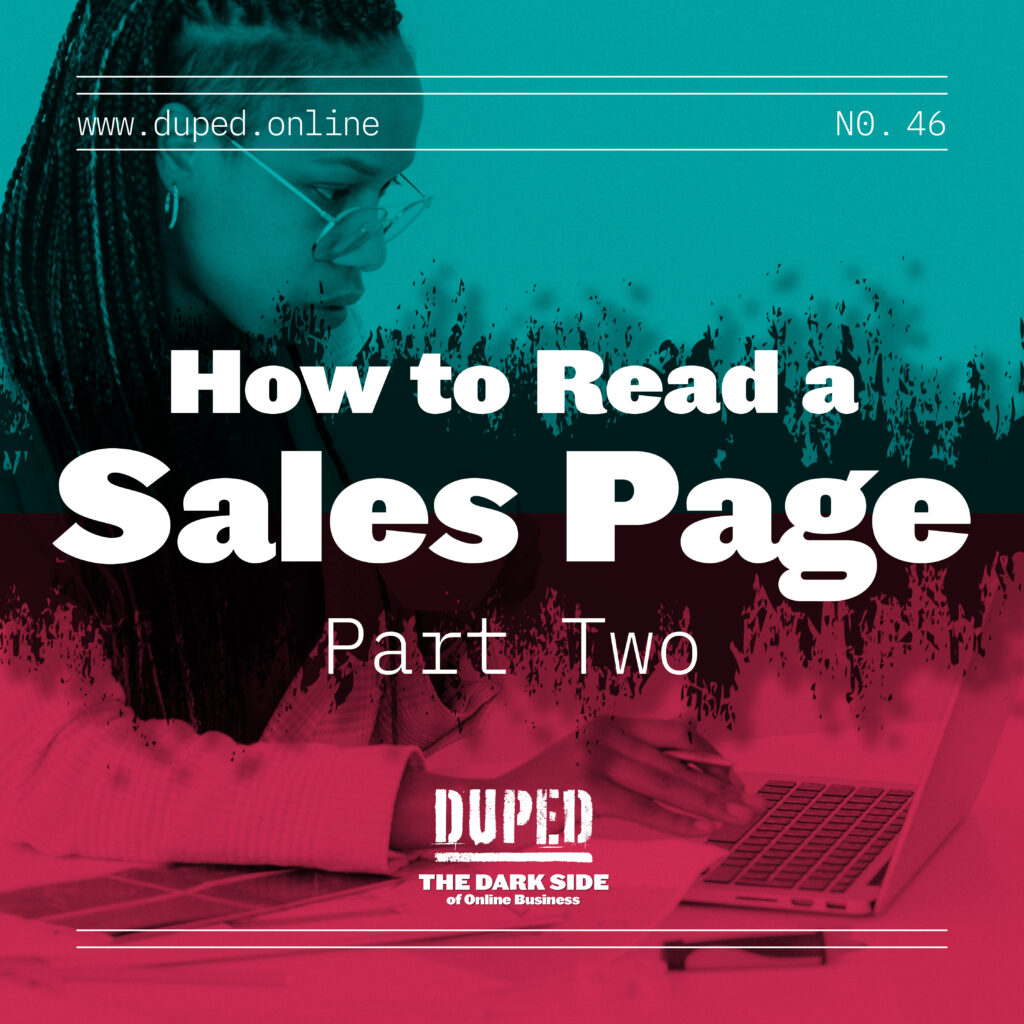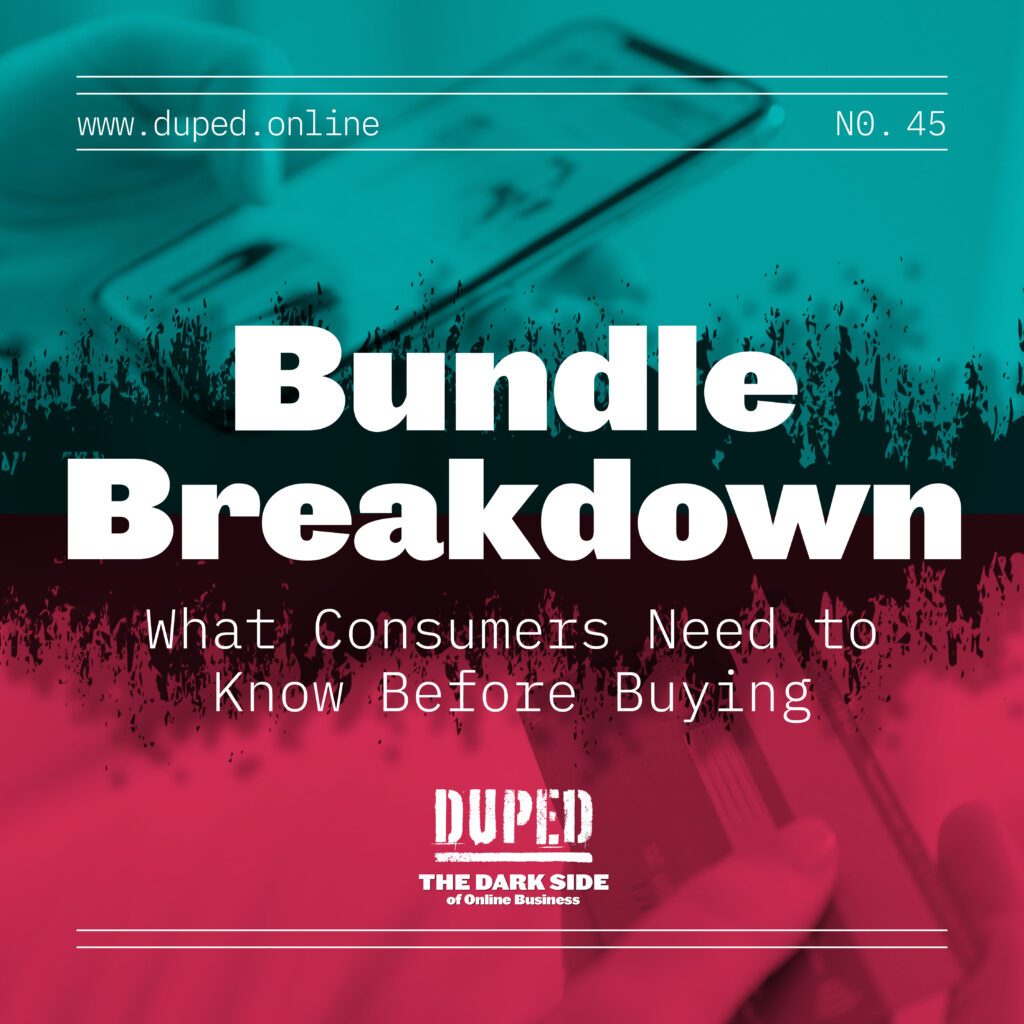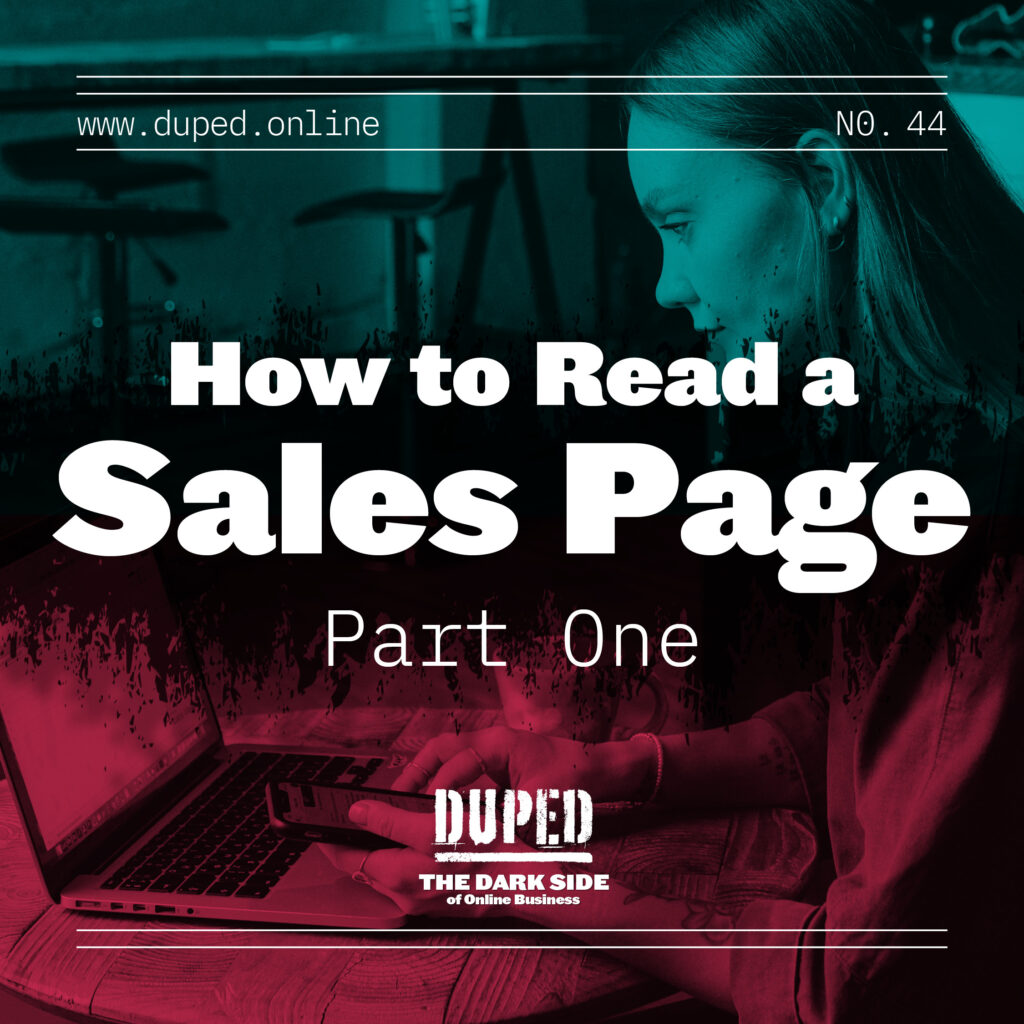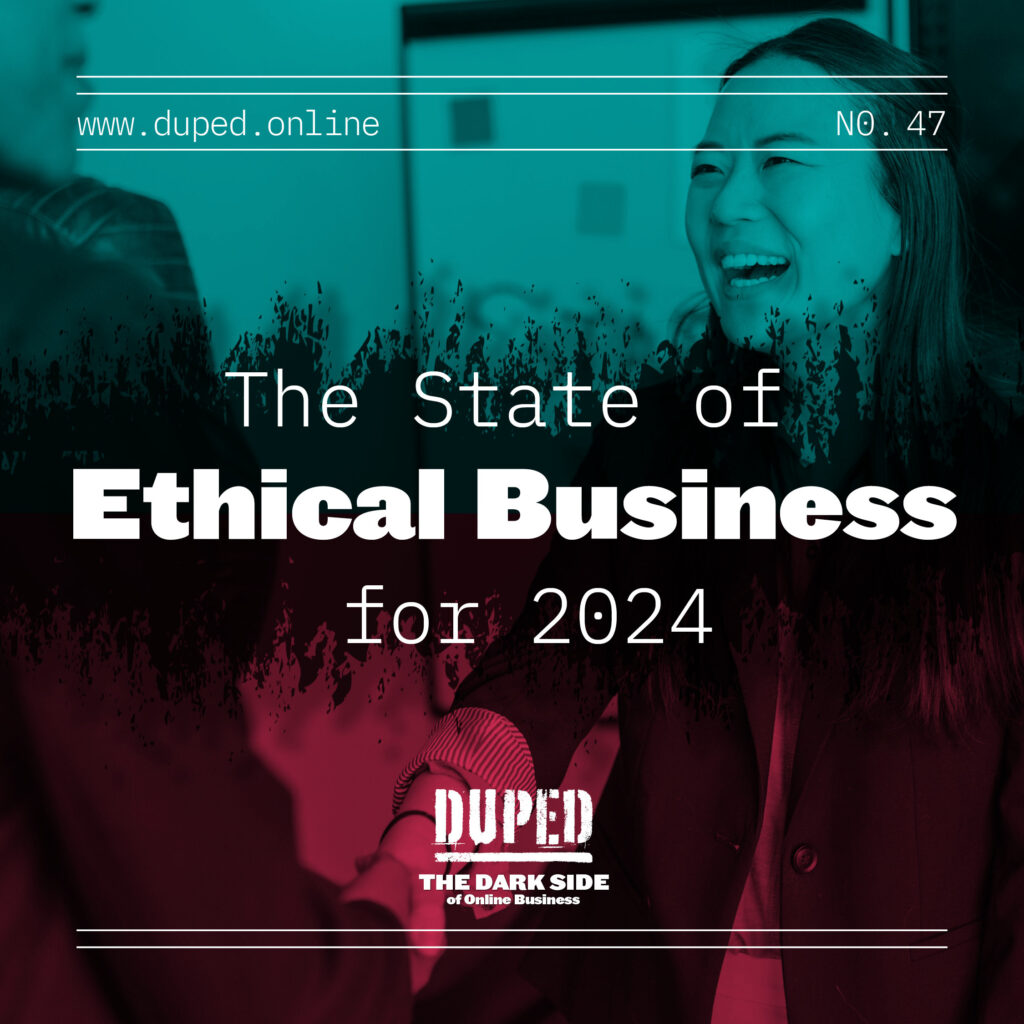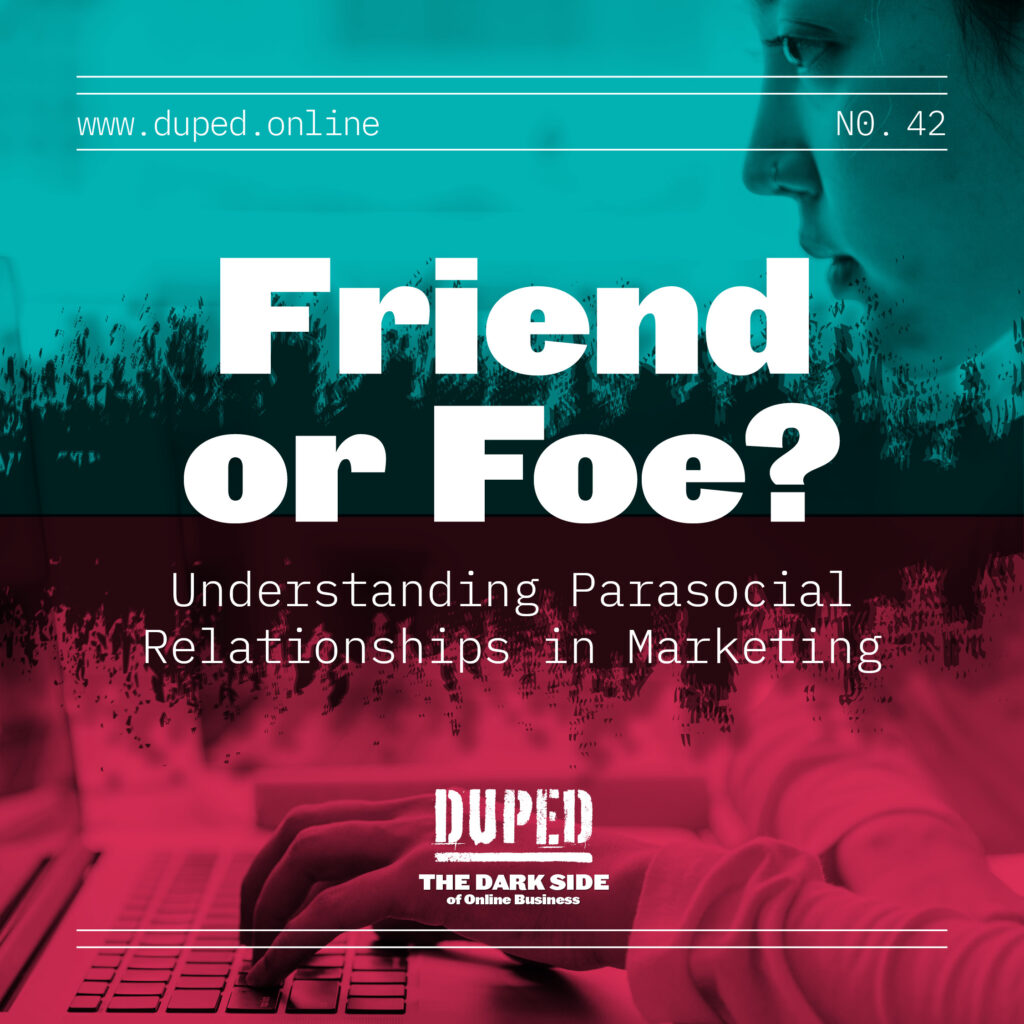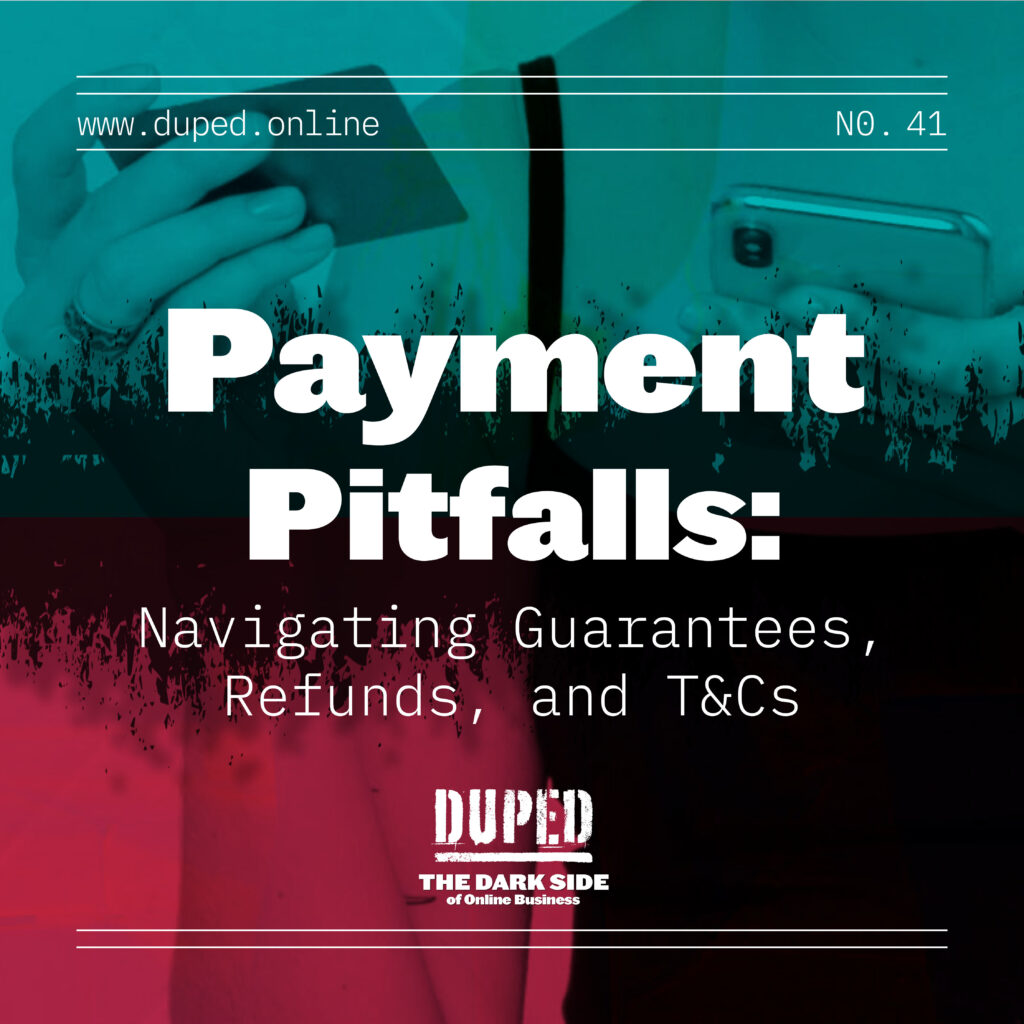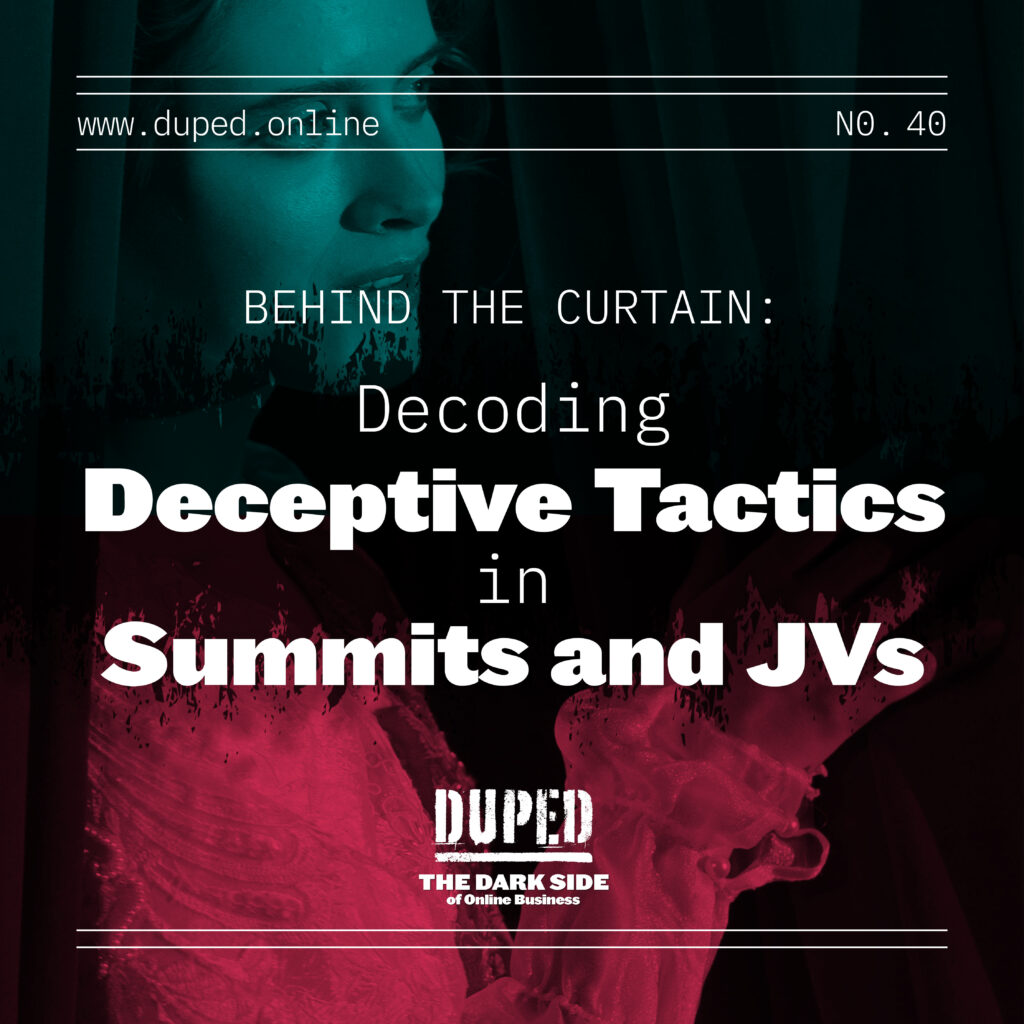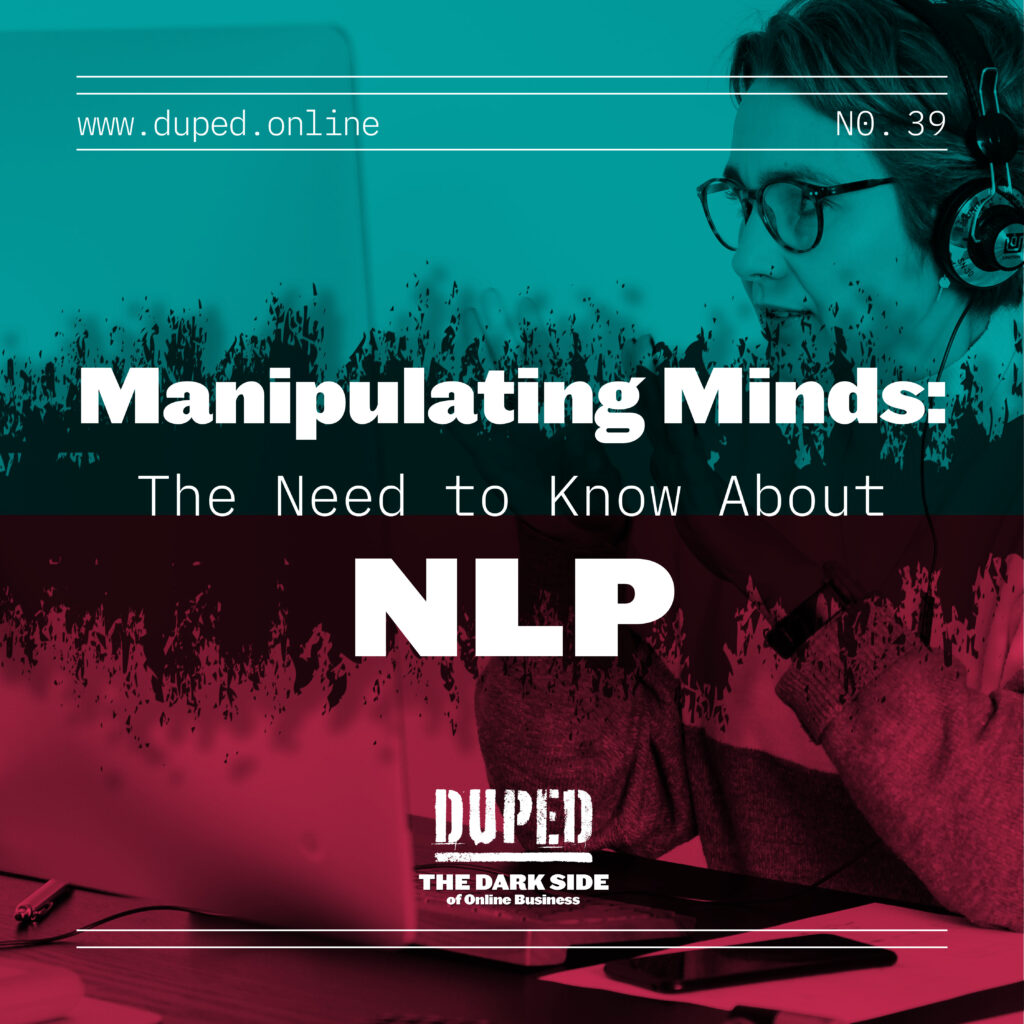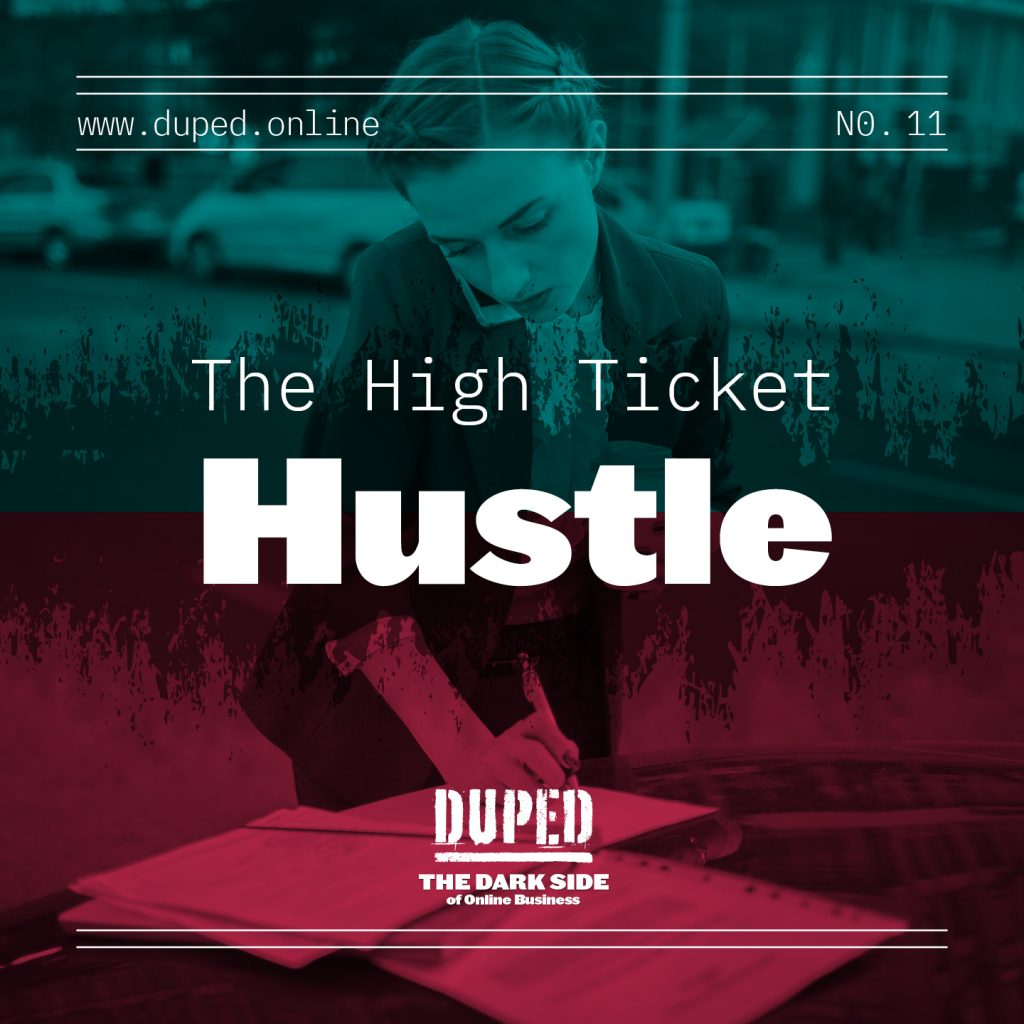
The High Ticket Hustle
Everywhere you turn right now in the online business world there’s another high ticket offer.
In this episode of Duped, we’re digging into the high ticket economy of online business including WTF high ticket even means, its problems, and why you probably shouldn’t believe the hype.

This whole high ticket hustle is on our last nerve lately, so we’re really looking forward to dissecting it. And yes, our calling it a hustle is a bit of a giveaway as to how we really feel about it.
Our social media feeds are full of high ticket offers, and it’s tedious. The promises are outlandish, and we don’t even know WTF they’re talking about half the time. Because, no thanks Dylan, we think our businesses would break with 100 high ticket leads a month.
What’s High Ticket Anyway?
Before we dive in, it’s important for us to define what we mean by high ticket. We need to start from the same place as the words high ticket are thrown around, and they’re everywhere right now.
Our news feeds are littered with ads making these offers. And when we look at what’s being sold, there doesn’t seem to be any consistency in terms of what makes something a high ticket.
It’s a total empty buzzword at this point, that doesn’t provide a lot of context for what it actually means. I’d file this under the category of tired tropes in online business like we talked about last season.
The only real consistent theme is high ticket is shorthand for “expensive”.
What’s interesting is that the more we see the term high ticket, the more we’ve been like… what does that even mean? What’s the actual dollar amount that makes something a high ticket?
We started off by Googling, and there was no one definition. We saw a few that said anything over $1000 is considered to be high ticket.
Which on the surface seems like it’s on the low end for the way it’s used in online business. So Maggie asked her community on Instagram, and they came back with answers ranging from anything from $1k to $20k.
Before we talk about the economy around these high ticket products, let’s think of this from a messaging point of view.
How can people be selling you into programs that are teaching you “high ticket” whatever when we don’t have a baseline for how much a high ticket even is. That’s just it. It’s all relative. Our high ticket is someone else’s drop in the bucket. What’s high ticket to each of us is really dependent on a number of factors including our business revenue, personal financial situation, as well as our identities.
We have some thoughts on how we can each define what is high ticket for our businesses and what we should consider as a “big” investment, but first, let’s talk about the economics of this whole high ticket situation in the online business world.
The High Ticket Everything Problem
Like we talked about earlier, the market is full of programs and coaches right now offering to teach you how to do high ticket sales so you can make more money.
Here’s the thing. So much of this ties into the industry’s reliance on income claim marketing. We’re being groomed by celebrity entrepreneurs into thinking that we should trust them because they make so much money and that they can teach us to do the same. Because the fastest way to make that money will be with a high ticket offer.
After all, it’s easier to sell 10 spots in a $50k mastermind to make half a million than to use a lower price point and serve more people, and probably end up making less.
The people using income claim marketing and showing off their lifestyle in their marketing, are the same people selling you the high ticket thing to learn how to land your own high ticket clients.
This is really a pyramid scheme where the person at the top of the pyramid is the only one winning because they’re not paying for an expensive coach or mastermind.
That’s the heart of this. It’s an entire economy created where everyone overcharges and overvalues their offers so they have the money to invest in the next level up the pyramid.
As they sell the dream, they feed into the hope and sometimes the desperation of people who want that too.
It isn’t that people shouldn’t get paid and charge for their offers, but rather about how there’s got to be a threshold as it’s impossible to get ROI.
Having high ticket offers isn’t inherently bad. It’s the ecosystem around it that’s about this endless quest for seven or eight figures and rampant capitalism. At the heart of so much of this is bad products, and vulnerable people getting duped by big promises.
Joining the Cool Kids Club: Belonging and Pay to Play
The other element of the high ticket economy that we have to dig into is the fact that so much of this joining of high ticket programs and masterminds (which are often about high ticket offers and masterminds) is rooted in a sense that in order to make it, we need to be part of a certain group.
This feels like cliques and high school and ties into our need to belong.
It 100% preys on our need to belong. An article from VeryMindWell talks about how belonging is a human need and we’ll seek out a group based on a number of factors, including shared goals and socioeconomic status.
When we refer to the socioeconomic part of this, in this context, we should refer to it as the level of socioeconomic status you aspire to, not your current one.
Online business as an industry relentlessly sells this idea that we need to be in the room with the right people, and that we’re the company we keep. You know, the whole Jim Rohn “you are the average of the five people you spend the most time with” thing.
This is some urban legend-level shit right here in my mind. If this was true…both our lives and business would look very different.
Yet, we’re literally sold this idea that we need to be with people like us (which often means the group is lacking diversity and is not inclusive) or we’re playing small.
The result is that people buy into high ticket programs or courses that are a stretch because they feel like it’s a condition of success.
They need to be in with the cool kids or they’re doomed.
What’s Your High Ticket Threshold?
We have some recommendations coming up, but this episode felt super incomplete without acknowledging the incredible level of privilege that comes with investing this amount of money to build your business.
That’s part of the reason the high ticket hustle in online business is something we wanted to talk about. There’s rarely ever an acknowledgment of how these biggest investments (even at the $1k mark) are a stretch for many people.
Instead, we’re confronted with the “invest at all costs” message which messes with us.
To avoid that, we wanted to propose that you consider what your high ticket threshold should be based on your business and personal situation.
Without telling you what to do, we have two ideas for you.
First, if you’re in the early stages of your business, you may have to invest to get things off the ground. For a while, you may have to reinvest back into the business to reach your goals. To ensure there’s a cap on this, think about what income level you want to reach, and how once you get there, you can adjust to our next suggestion.
Second, once you hit the $5k a month level, we’re proposing a 10% of revenue max on what you invest in coaching and programs per month. If you make $5k a month, no more than $500 per month should go to coaches/programs.
As you make more money, you can invest more money, but this will save you from being sucked into the high ticket hustle.
For perspective, Maggie continues to invest in her business, but at this stage of the game, her coaching/programs budget is more around 5%. At a certain point, the need to invest constantly should level out. Plus, her experiences with programs at the $10k+ mark weren’t great. They’re generally a bad fit for her and don’t produce ROI.
What to Watch for With All Things High Ticket
Duped is about giving you food for thought, not about telling you what to do, so in that spirit, we wanted to give you some things to watch for when it comes to the high ticket economy.
Beware Income Claim Marketing: What’s the saying? If it’s too good to be true, it probably is. When it comes to these offers beware of income claim marketing. Are they using their own income plus income-laden testimonials to sell you the idea this too can be you?
Slow Down Before You Buy: I know how it is. You’ve had a shitty day and you’re tired. You’re scrolling Insta and then someone is promising you that you can buy their mini-course for $37 bucks to learn how to close high ticket sales. Next thing you know, you’re in a program or mastermind that definitely wasn’t in the budget. As we said last season, slow down. Watch for scarcity and high-pressure offers. Consider instituting a waiting period before you buy.
Consider Potential ROI: Math can be powerful, and when you start to drill into a realistic scenario for what a program costs, and how much you’d need to make to pay for it, and the time you’ll invest, you may discover it’s just not worth it for you.
Don’t Pay to Play: Don’t believe the hype. You do not have the run with the cool kids and buy your way into having business friends in order to make it. It’s bullshit. Plus, if you’re listening to this show you probably won’t even like the people in that crew anyways.
Price Your Offers with Integrity: As a business owner, it’s tempting to want to charge big bucks for the work you do at the behest of the high-ticket hustlers. But you need to consider if the value of the offer is aligned with the value, or if it’s a case of online business bubble inflated pricing. There’s a middle ground between being fairly compensated for what you offer your customers, and exploiting their vulnerabilities and bank accounts to get rich.
Links for this show:
Join the

Patreon
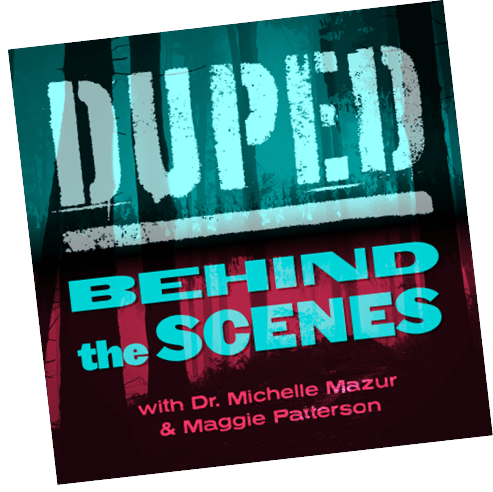
for only $7/month and get a
monthly bonus episode,
behind-the-scenes content
and more.
